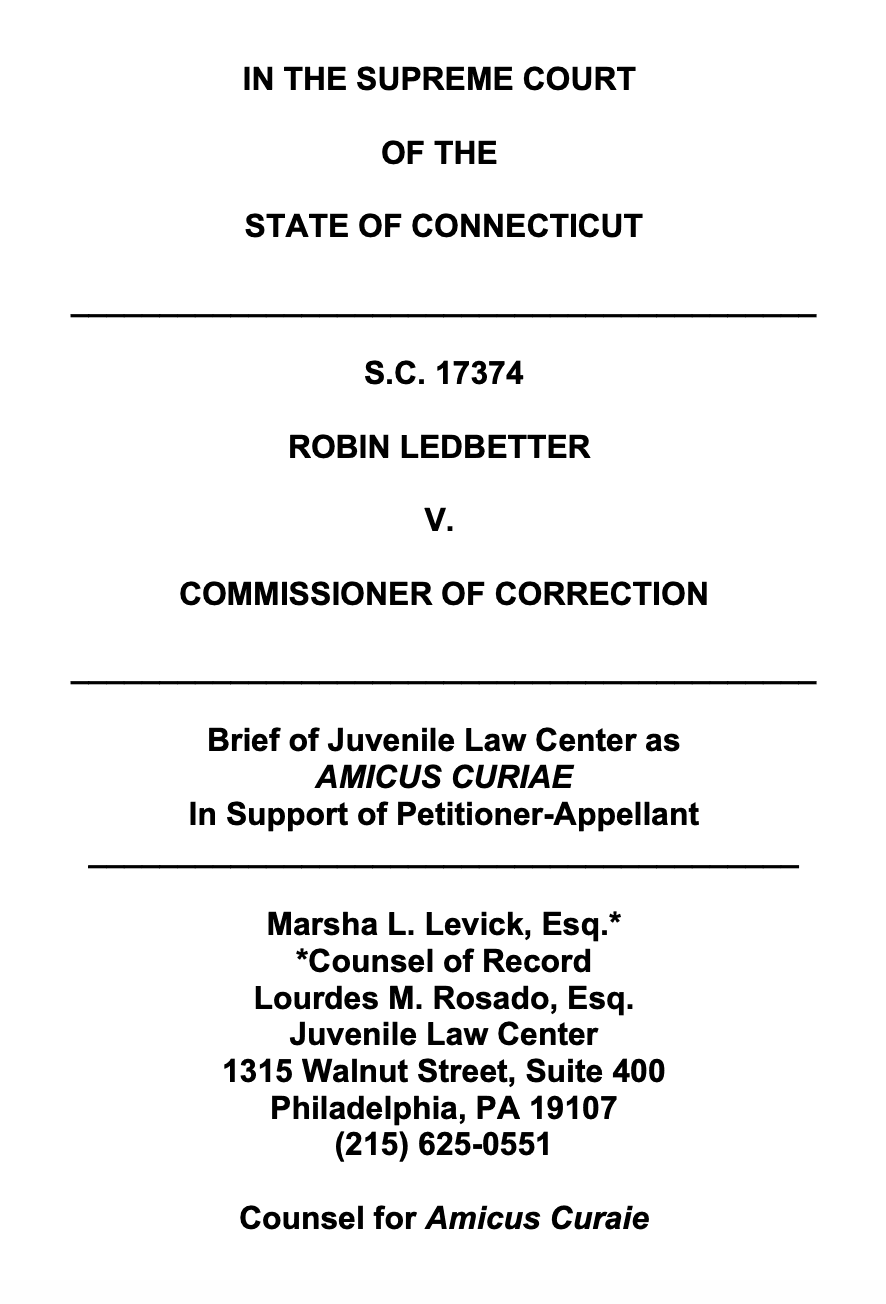
Summary of Argument
The Petitioner-Appellant [hereinafter “Petitioner”] raises one issue on appeal of the denial of her writ of habeas corpus: whether trial counsel provided ineffective assistance when he conceded the voluntariness of Petitioner’s confession. Specifically, Petitioner argues that trial counsel was ineffective because he conceded Petitioner’s claim, after first advancing it in a suppression motion, that Article 1, § 8 of the Connecticut Constitution mandates suppression of the Petitioner’s confession because police failed to advise Petitioner, who was then 14 years of age, that she would be prosecuted in adult court as an adult offender.
Amicus urges the Court to find that the state constitution requires that 14-year-old youth be so warned prior to interrogation, because the developmental and neurobiological differences between adults and minors demonstrate that minors require greater due process protections to ensure the voluntariness of their confessions. Scholarship on adolescent development in the realms of cognition and decision-making, as well as emerging research on the structure of the teenage brain, establish that adolescents, particularly younger adolescents such as Petitioner, are at a disadvantage in the interrogation setting as compared to adults. Courts have consistently relied on research regarding the developmental differences of youth in determining the scope and breadth of their constitutional rights, the most recent example being the United States Supreme Court’s opinion in Roper v. Simmons, 125 S.Ct. 1183 (2005). The Simmons’ holding that the United States Constitution prohibits execution of juvenile offenders is based in part on research demonstrating the developmental differences of youth that make them less culpable for their criminal conduct than adults. Id. at 1195-96. Amicus presents for this court’s consideration research on the developmental and neurobiological characteristics of adolescents that bears directly on the question before the Court in this appeal.